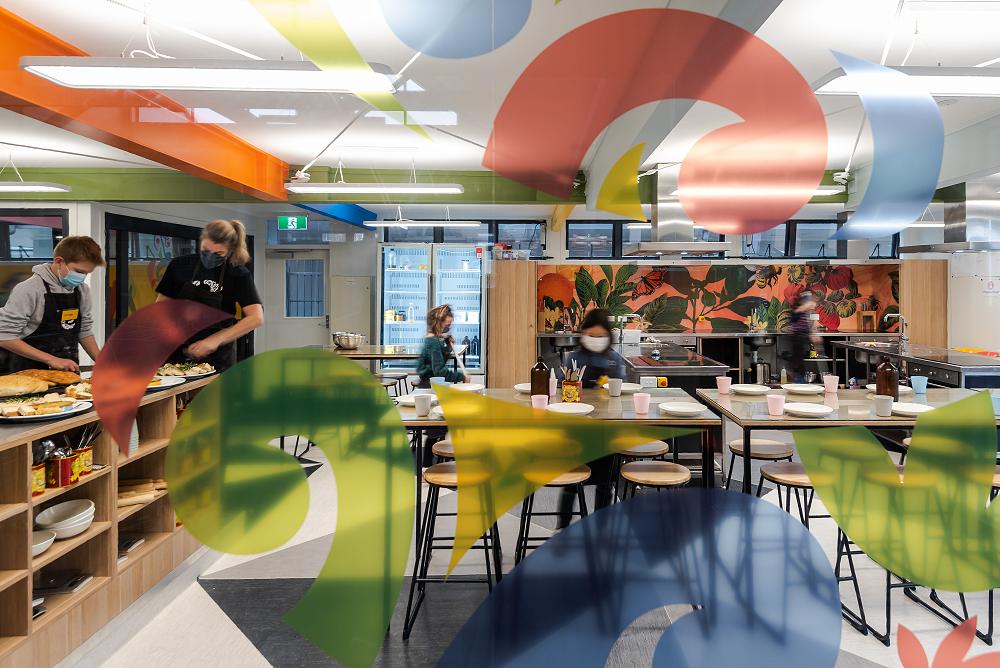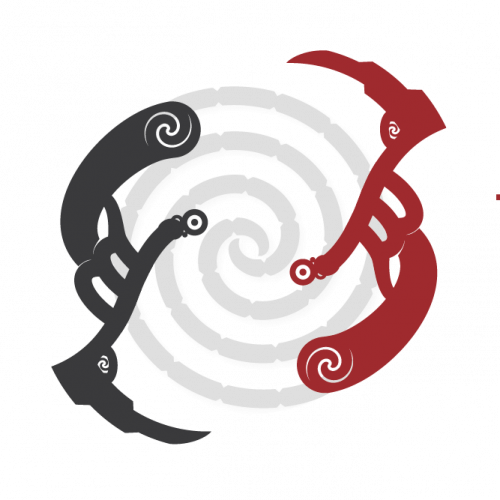
Meaningful ākonga engagement in learning at Edendale School
A redevelopment of old teaching spaces offered Edendale School the opportunity to think innovatively about how the use of space might enhance learning opportunities.
At Edendale School in Auckland, the Garden to Table programme has been a flagship programme for many years. It was initially run by volunteers out of a spare classroom. However, when a block of classrooms was being remodelled, the Tumuaki, Jonathan Ramsay and Tumuaki Tuarua, Jonathan Jackson, saw the opportunity to design a purposeful space for this highly popular meaningful and authentic learning programme. The finished space was the overall winner of the 2022 LENZ Award.
I went to visit, to find out more about this stunning space and programme. The new learning space was the Supreme Winner of the 2022 Learning Environments New Zealand Chapter Awards. In this article, Edendale School leaders share their views on how this award winning space supports innovative curriculum design.

How did the programme emerge and assume such importance in your curriculum design?
Edendale School has always been known for its active and engaging holistic education, delivered through learning in authentic contexts. The goal is to equip ākonga across years one to six with 21st century skills, including the ability to think about problems critically and creatively. Real breadth and depth of learning opportunities occur for ākonga through a range of approaches including:
- learning through play,
- inquiry learning,
- specialist kaiako in Music and Visual Art and,
- the Garden to Table programme.
As one of the first schools to introduce Garden to Table, we recognised its value in engaging ākonga in hands on, relevant, interdisciplinary learning opportunities.
Initially both the garden and kitchen programmes were run by volunteers, in any spare space we could use to accommodate equipment such as preparation facilities and an oven. However, to secure the consistency and sustainability of the programme, in recent years we have paid specialist experts to run these programmes. With the redesign and rebuild of older classroom blocks we had the opportunity to ask, "what might a purpose built space look like and how could we accommodate the teaching programme we want to ensure we can continue to deliver"?

In designing this space, what were you hoping to achieve here?
Bringing his skills as a Chef in a previous career, Jonathan Jackson worked collaboratively with Jonathan Ramsay the Tumuaki, and the Ministry of Architecture charged with the rebuild design. We had a clear vision of creating an industrial, robust ‘real life’ facility, where ākonga could experience the authenticity of working in a cafe or restaurant. Our aim was to ensure ākonga could drive their learning, by working collaboratively in teams. To this end we designed for:
- a separate pantry and storage area with large industrial style fridge/freezer,
- an industrial cleaning and dishwashing station,
- 4 cooking stations,
- access to online resources for research in a separate study area and,
- a space for collaborative problem-solving, that could also double up as a dining area to share the outcomes of this mahi.

How is the programme designed to give ākonga meaningful involvement and agency over their learning?
Empowering ākonga requires aspects of agency including voice and opportunities for leadership. In the early days of the programme we had 700 ākonga rotating through the programme that was very teacher driven. It was a one-off experience rather than an authentic, deep student-centred learning opportunity.
We have carefully designed thisprogramme to allow for ākonga led learning to be at the forefront of our pedagogical approach. We have targeted our Y4, 5 and 6 ākonga to learn in the kitchen. The year 3 ākonga are introduced to the gardens.
A class group of ākonga participate in the programme over three consecutive days. While half the class is in the garden for those three days, the other half are in the kitchen. Here they work in teams of 3-4 ākonga.
The kitchen kaiako decides on the context for the week, e.g., pasta. The kaiako role is to explain the clear expectations of the three day challenge – the “must dos and can dos” and to support ākonga with their process of cyclical research and experimentation. Workshops are run on a “just in time" basis to teach skills ākonga may require, e.g., knife skills for using the pasta making machines.
The pasta challenge - Day one
The groups have access to the small kitchen library and online resources to research and learn about all the different pasta and and spend time experimenting and learning how to recreate different types from scratch.
Day two
The focus is on developing a sauce to go with their chosen pasta. Cycles of experimentation and inquiry support each team to develop their recipe.
Day three
Ākonga are ready to create from scratch, their chosen pasta dish to serve to their classmates.
In the garden setting, a similar structure of workshops and hands on gardening practice ensure ākonga learn about plant identification, planting and harvesting techniques. We are fortunate that our current garden specialist has a strong bicultural focus and we are looking for avenues to bring a greater understanding of the Maramataka into our gardening programmes. We also have bees and ākonga learn how to safely suit up and harvest the honey from the hives.
After COVID we realised the importance of finding ways to reconnect with our community so we established the Koha Table concept. Here, whatever is left over from the produce grown or processed is put on the table for the community to purchase for a koha. We preserve vegetables and cultivate all crops. What is not utilised in the kitchen programme is repurposed as pesto, sauces and other suitable products.
At Christmas, we will produce gift boxes of dried pasta, tomato sauce in jars and parmesan which will be gifted to families.


How does the learning here connect with the rest of their experienced curriculum?
The classroom kaiako is also actively involved in the programme and is able to follow up with the interests and passions ākonga display in the kitchen and garden. The team are always on the look out for opportunities to make the learning as authentic as possible, e.g., connecting through zoom with a fungi expert to better understand the process of growing mushrooms.
We can see that our next step is to strengthen ākonga ownership in the garden space and this could well be by looking for the natural links horticulture has with our Science, Math and STEAM programmes.

Final thoughts
The new learning space was the Supreme Winner of the 2022 Learning Environments New Zealand Chapter Awards. The judges citation sums up beautifully the magic of this space as a contributor to learning that is powerful and engaging for ākonga.
This project is exemplary in repurposing an old facility and some otherwise unpurposed space in the centre of the school to provide ākonga and kaiako with creative learning spaces in which to engage in the school’s innovative pedagogical approach of combining sustainability, the environment, food awareness and social values. The Edendale Primary School Garden to Table project is a curriculum-based concept embedded in connecting outdoor and indoor areas. The programme provides colourful, flexible and flowing learning spaces. Ākonga are encouraged to learn core subjects and life skills through experiential learning in the garden and kitchen.
This project reflects the success of planning and consultation in achieving the brief on a small site with a small budget.
As we know, space is but a vehicle to enhance opportunities for authentic, ākonga led learning. I left Edendale School struck by the way the team is so committed to truly living by its espoused mission and ensuring ākonga have the very best of opportunities to learn!
EDENDALE SCHOOL MISSION
We are committed to providing a school where we:
- Think, learn and create in a fun, friendly, inclusive environment with strong community connections
- Grow curious, lifelong, excited learners
- Experience a wide breadth of learning opportunities including environmental sustainability and the Arts

